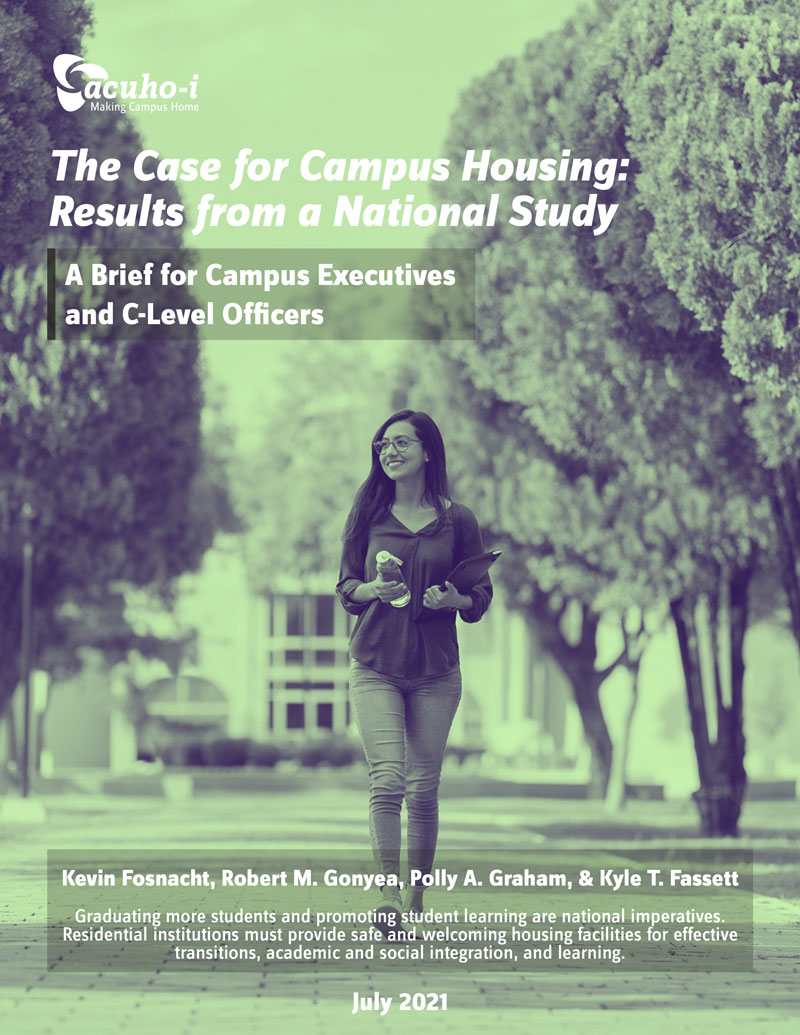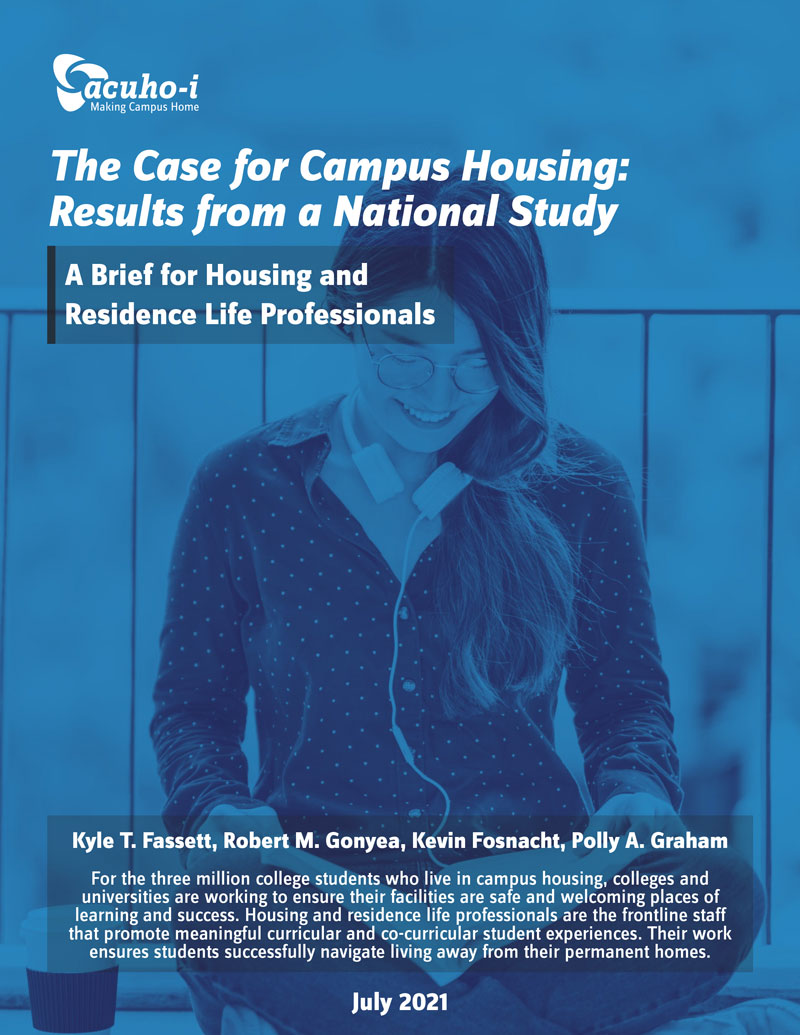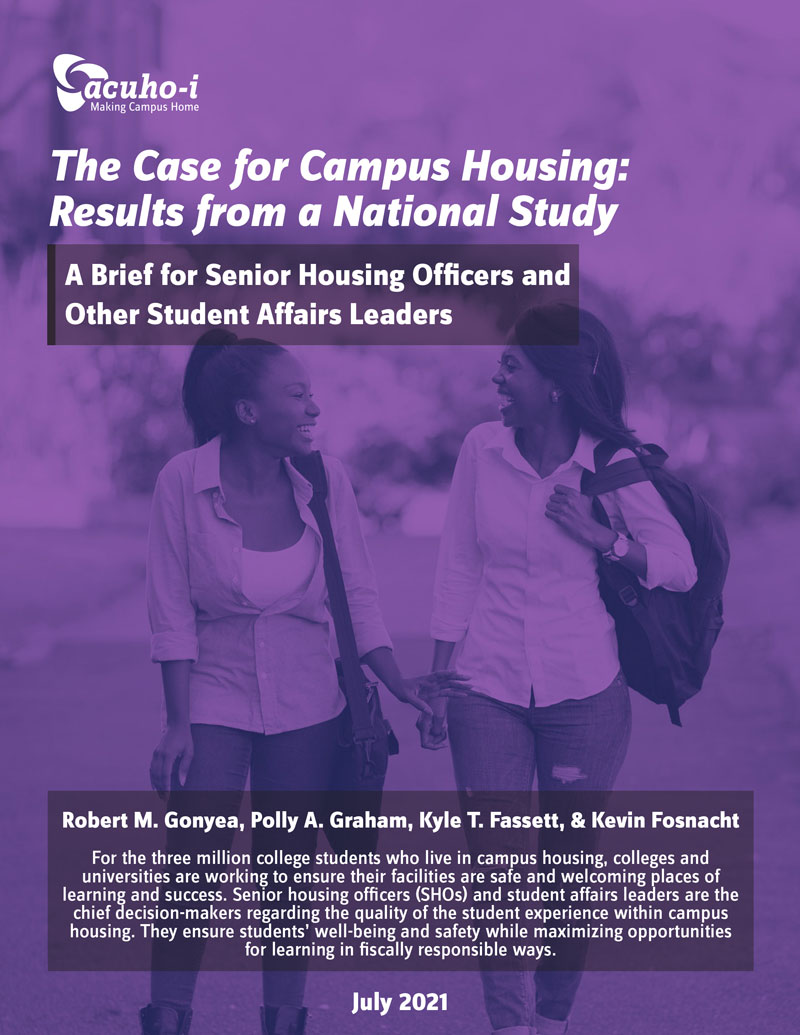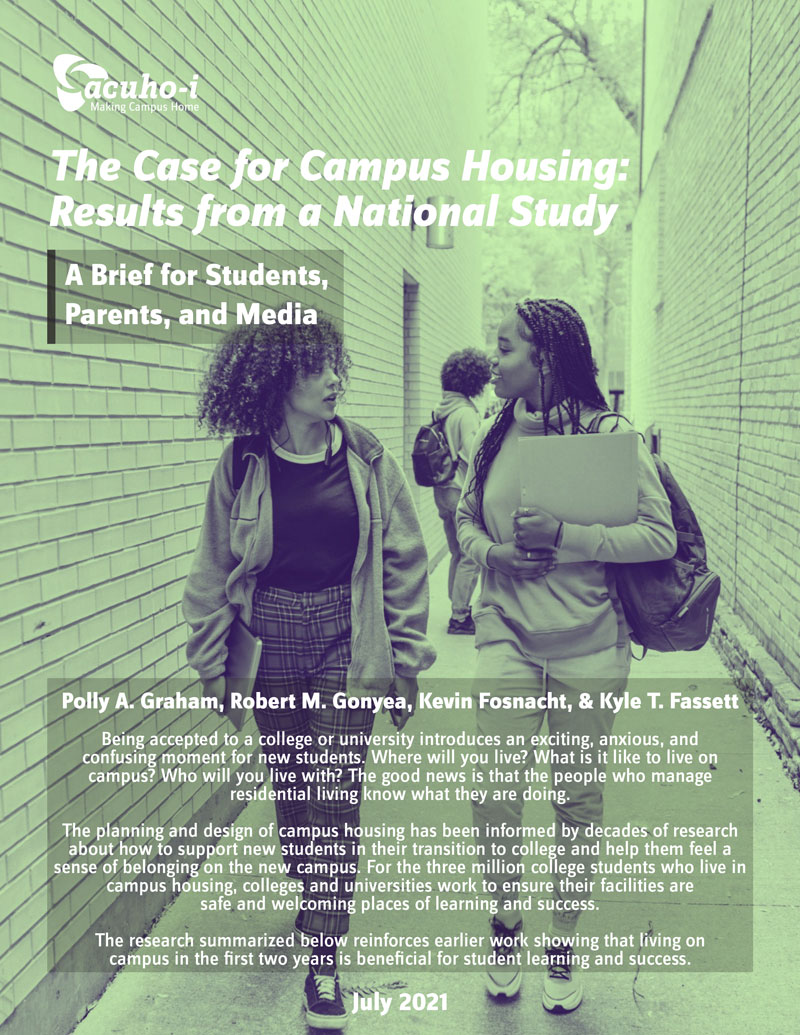Campus housing provides demonstrable benefits to students. The data proves the value of your work.
The National Survey of Student Engagement (NSSE), funded by an ACUHO-I sponsored grant, conducted a three-year study that evaluated how undergraduate students’ residential options – both on- and off-campus – influenced student engagement and persistence. The study combined data from NSSE, the nation’s largest survey of undergraduate experiences, the ACUHO-I Campus Housing Index, and the National Student Clearinghouse to create a comprehensive picture of how students’ living arrangements influence their participation in effective educational practices and their likelihood to persist in college.
High-level results from the survey showed that:
- First-year students who live on campus persist to the second year at a rate 2.0 percentage points higher than those who live independently of their families off campus (92% vs. 90%).
- Sophomore students who live on campus persist to the third year at a rate about 2.2 percentage points higher (94.9% vs. 92.8%) than those who live independently of their families off campus.
- Many students of color (Asian, Black, and multiracial) who picked their roommates perceived a significantly and substantially more welcoming campus environment
- Students who reside in living-learning communities persist at a rate 2.2 percentage points higher than other on-campus students. The difference is 4.7 percentage points for male students.
Survey results were released in four reports aimed at distinct audiences with the intention that they be used to advocate the value of campus housing and illustrate the benefits it provides. Download the reports and share with your campus stakeholders to help them better understand the important work you do.




